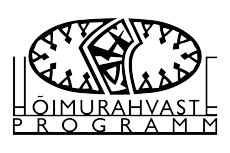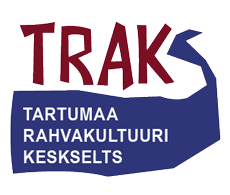Oi, Mari, sizaruveni
(Song to the Bride)
Janika Oras and choir
In Ingrian
Oi, Mari, sizaruveni,
kui sinnuu maama maalla toi,
puri vaa puuda, söi kivveehe,
näri saunan salvemija.
Siun vaa izmora izozi
küssüü vaa üli künnükseni:
“Minen meille luoja loi,
minen andoi armolline?“
“Luoja loi luzikoim pezijän.“
Izüt suuttuu ja vihastuu,
andoi suulla tiedääkseni.*
Sugu käski suoho viijä,
vellodo virdaha vizada,
sizodo lasta lainehessa.
Ei sinnuu emüdö raatsinutkaa,
laati hullun hunduloissa,
vagahaizen vaibaa sissee.
Muu pere noisood murginalla,
maamaz on käzi kätküivessä,
viizi sormee ov vivussa.
In English
Oh, Mari, dear sister,
When your mother brought you to this world,
She chewed on trees, ate stones,
Gnawed sauna’s corner logs.
Your sweet father
Asks from the threshold:
“Who did our Lord create,
Who did the Merciful give us?”
“The Lord has brought a spoon washer.”
Father becomes upset and angry,
Expressed [it] with words.
The family ordered [you] to be taken to the swamps,
Brothers [ordered] to be thrown into flowing waters,
Sisters to be sent into waves.
But your mother spared you,
Wrapped you, silly, in diapers,
The newborn in the carpet.
The rest of the family wakes up for breakfast,
Your mother has her hand on the cradle,
Five fingers on the cradle bow.
* Alternatively, antoi suvulla tietä... ’let the family know’.
A young maiden called Mari is told the story of her birth. Mother was giving birth to her in the sauna and was having a difficult labour. When the father and the rest of the family heard that a girl was born, they told her that she should be killed. The mother wouldn’t do that and tenderly cared for her baby.
The song, popular in western Ingria, has a parallel variant in the Estonian tradition called “Daughter into the water“, and it was sung on any occasion but also as a wedding song. The song is believed to derive from a former tradition that when a girl was born, the family decided whether she will live or not.
T M Anna Kivisoo, Ropsu, and choir (Lauri and Aili Laiho-Simonsuuri 1937, ERA, Pl 129 A1).

Children in Mati (Mattiya) village in front of Piotra Boranov’s house. Photo: I. Talve, 1942 (ERM Fk 1004:59).





